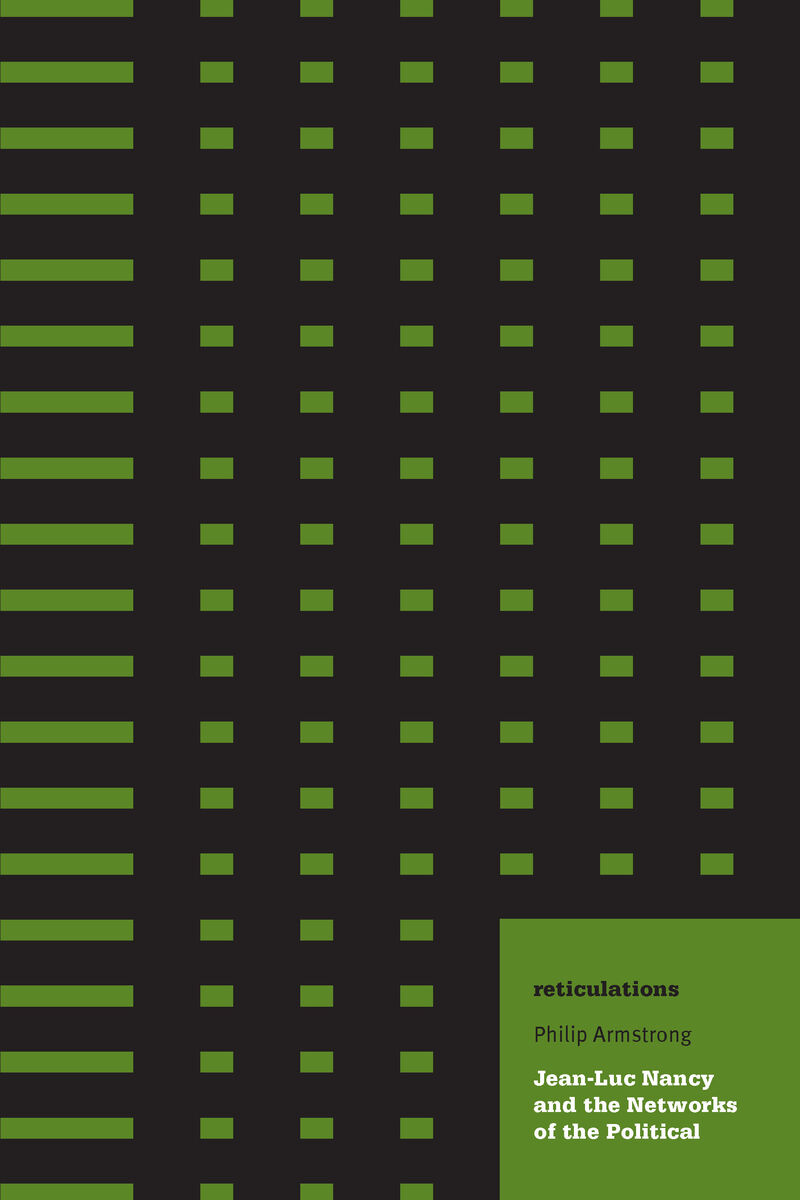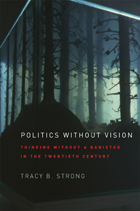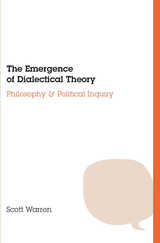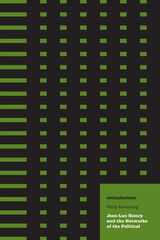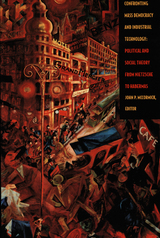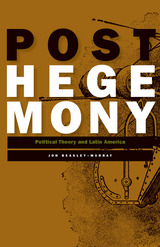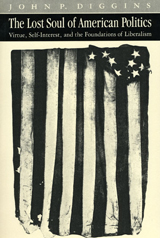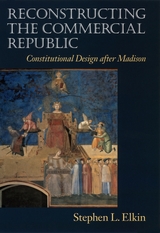Reticulations: Jean-Luc Nancy and the Networks of the Political
University of Minnesota Press, 2009
Paper: 978-0-8166-5490-1 | eISBN: 978-0-8166-6811-3 | Cloth: 978-0-8166-5489-5
Library of Congress Classification JA84.F8A835 2009
Dewey Decimal Classification 320.092
Paper: 978-0-8166-5490-1 | eISBN: 978-0-8166-6811-3 | Cloth: 978-0-8166-5489-5
Library of Congress Classification JA84.F8A835 2009
Dewey Decimal Classification 320.092
ABOUT THIS BOOK | AUTHOR BIOGRAPHY
ABOUT THIS BOOK
Analyzing a wide range of Jean-Luc Nancy’s works, Reticulations shows how his project of articulating the political in terms of singularities, pluralities, and multiplicities can deepen our understanding of networks and how they influence community and politics. Even more striking is the way Armstrong associates this general complex in Nancy’s writing with his concern for what Nancy calls the retreat of the political. Armstrong highlights what Nancy’s perspective on networks reveals about movement politics as seen in the 1999 protests in Seattle against the World Trade Organization, the impact of technology on citizenship, and finally how this perspective critiques the model of networked communism constructed by Hardt and Negri. Contesting the exclusive link between technology and networks, Reticulations ultimately demonstrates how network society creates an entirely new politics, one surprisingly rooted in community.
Revealing how networks reopen our understanding of political discourse today
Significantly advancing our notion of what constitutes a network, Philip Armstrong proposes a rethinking of political public space that specifically separates networks from the current popular discussion of globalization and information technology.
Analyzing a wide range of Jean-Luc Nancy’s works, Reticulations shows how his project of articulating the political in terms of singularities, pluralities, and multiplicities can deepen our understanding of networks and how they influence community and politics. Even more striking is the way Armstrong associates this general complex in Nancy’s writing with his concern for what Nancy calls the retreat of the political. Armstrong highlights what Nancy’s perspective on networks reveals about movement politics as seen in the 1999 protests in Seattle against the World Trade Organization, the impact of technology on citizenship, and finally how this perspective critiques the model of networked communism constructed by Hardt and Negri. Contesting the exclusive link between technology and networks, Reticulations ultimately demonstrates how network society creates an entirely new politics, one surprisingly rooted in community.
See other books on: Armstrong, Philip | Nancy, Jean-Luc | Networks | Political and social views | Political science
See other titles from University of Minnesota Press
